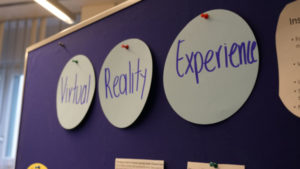A stronger integration of quantified socio-political factors such as political institutions and violent conflict in scenario research is necessary. Today’s scenario research, which is an integral part of analyses by the Intergovernmental Panel on Climate Change (IPCC), for example, examines scenarios of climate and societal futures that are responsive to a wider range of challenges towards strong climate action and sustainability. Political and social science insights need to be increasingly incorporated into these scenarios to mirror more plausible development pathways towards a sustainable future.
Bringing together leading scholars who have been working on understanding and projecting socio-political drivers and trends became a visible need during the Second Scenarios Forum (2022). With this aim, the German Institute of Development and Sustainability (IDOS), the Peace Research Institute Oslo (PRIO), the V-Dem Institute and the Stockholm Environment Institute (SEI) organized a workshop on 24th and 25th of October in Bonn. Jointly, a mapping of existing approaches, methods and concepts was carried out in order to subsequently look for ways to better integrate (socio)political factors into the overarching field of scenario research. A contribution of IDOS’ colleagues was the presentation of models of political institutions and violent conflict along different (sustainable) development pathways until 2050 that were developed for a joint publication in Nature Climate Change with colleagues of the Potsdam Institute for Climate Impact Research (PIK).
The workshop made an important contribution to strengthening the research group. In addition, the first steps were taken towards a “structured model comparison”, which will contribute to the systematic integration of political science factors in scenario research. The co-organising institutions plan a second workshop in 2023, which will combine qualitative and quantitative approaches to integrate socio-political factors into scenarios. We are particularly keen to invite colleagues from non-OECD-based contexts. Stay tuned!

